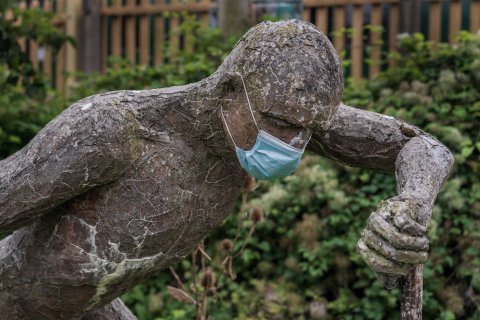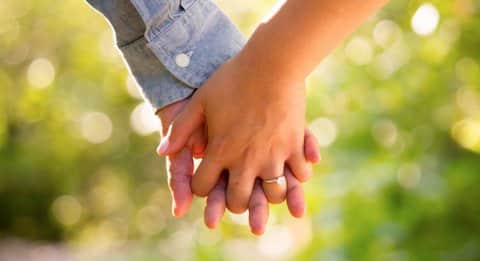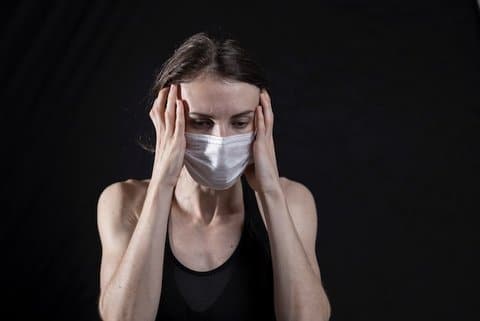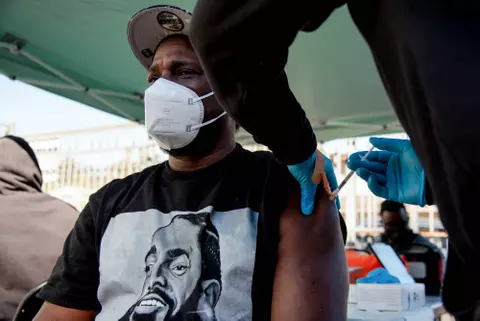
31 Dec 2020 Was a Year of Grief Like No Other

With the addition of a face mask, this statue reflects the widespread grief caused by the COVID-19 pandemic. (Nick Fewings via Unsplash)
Commentary, Keisa Reynolds
At the start of the year, a series of health emergencies resulted in a diagnosis of Stage Four kidney failure for my husband. We spent weeks wondering if he was going to die less than a year into our marriage and four months into parenthood.
Fortunately for us, the diagnosis was wrong and my husband was, in fact, healthy. However, we learned that he has a sensitivity to antibiotics and pain medication — including over-the-counter drugs that can help people manage COVID-19 symptoms.
By late February, we were able to calm down and think of a future again, though we wondered if COVID-19 would become an issue. Our family was lucky with my husband’s misdiagnosis; however, hundreds of thousands families in the United States did not have the same fortune when the coronavirus threatened their families’ health. And it continues to threaten lives across the globe, even with mass distribution of a vaccine on the horizon.
The vaccine may get the coronavirus under control, but it isn’t a solution to many problems presented by the pandemic. The last nine months highlighted social inequities that are often ignored. The mass loss of jobs, housing and health insurance resulted in more mutual aid projects than ever.
Millions across the country are still waiting to receive a second stimulus check and sustainable help from our government. Some hope that President-elect Joe Biden will be the saving grace the country needs during this time. Others came to the realization that the country will be in better hands, but our lives remain at stake.
There are over 70 million essential workers, many of whom never got to stay home. Workers in restaurant and retail industries continued to show up, even with the daily threat of the falling ill or unknowingly spreading the virus. Many people who work from home were able to order groceries that were picked, bagged and delivered by workers who didn’t get to choose how safe they felt to return to work.
My hope is not that the vaccine allows us to live our lives fully, but that we don’t forget the lives we lost, and the lives that continue to be ignored, mocked and undervalued. Perhaps 2021 is the year of figuring out priorities — individually and collectively.
This commitment to the right priorities should remain after the pandemic because most of us will continue to face social injustices. The pandemic did not end domestic violence, transphobia or police brutality.
The killings of George Floyd, Tony McDade and Breonna Taylor inspired millions of Black people and allies across the globe to continue to fight for racial justice and abolishing police.
Climate change continues to pose a threat as wildfires nearly ravaged the West Coast. Indeed, the coronavirus was not the only danger many people faced.
Many lives were lost to accidents and illnesses, including more than 300,000 to COVID-19 alone. We also lost celebrities such as Chadwick Boseman and Alex Trebek, who died of cancer, and Kobe Bryant and Naya Rivera in unforeseen circumstances that shocked us all.
The pandemic and all that loss made us collectively accept that nothing is within our control. 2020 also taught us there’s so much about grief that we still don’t understand. Our collective mourning has not ended, and for many will not, no matter how many others wish for life to be normal again.
But that isn’t to say that we can’t move forward from here. As I said at the end of 2019, I hope that we keep creating the world that we want to live in, and that we do it together.






No Comments